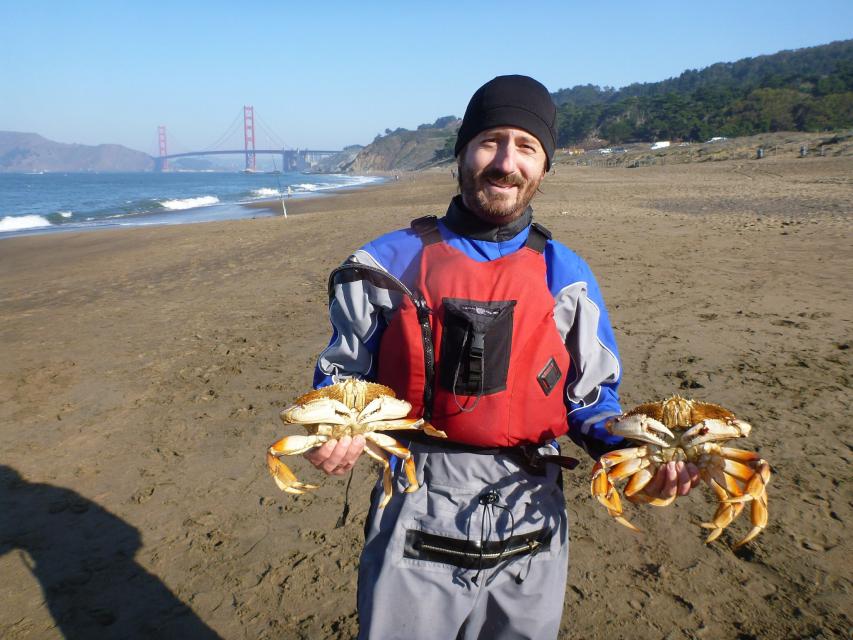Water Leaders – Where are they now?
Mark Tompkins: Scientist, engineer and a founder of FlowWest, a consulting firm in Oakland
Class Year: 2000
Class Research Project: Water Quality in California
What was your job when you were a Water Leader: A consultant with CH2M Hill
We came across Mark Tompkins when he recommended a current employee from FlowWest to become a 2016 Water Leader. We found it interesting that two other former water leaders – Mike Urkov, class of 1999 and Paul Frank, class of 2010 – also work at the small company. Below is a conversation Tompkins had with Executive Director Jennifer Bowles.
What are you doing now?
At FlowWest, we consult on water projects mainly in California but also across the U.S. and some overseas. We are unique in that we’ve invested a lot into making partnerships in Silicon Valley and the people there who have been doing technology for years and work for places like Apple and Google.
The three principals of our firm, by training, are scientists, engineers and planners. Our thought was to embrace the kind of things that Silicon Valley has developed and apply all this great knowledge to California water. We feel there‘s so much knowledge out there that’s not being used and people are often relying on outdated analyses.
What is the most pressing water issue that you are dealing with?
The biggest problem in California water is getting our collective arms around the data and information from which to make decisions. We really need to move into the 21st Century in terms of how we’re managing this really limited resource that has multiple needs. We’ve invested a lot in collecting the information; we’re just not doing a job that is good enough in terms of leveraging that information into better management.
Tell us about a big project you are working on
We’re working with the Bureau of Reclamation and U.S. Fish and Wildlife Service on a project which invests public dollars into either flow or restoration projects to offset impacts to species, mainly salmon, from the Central Valley Project. They brought us in to pull data where it exists from all 26 watersheds and fill the gaps where expert knowledge has been used to drive the modeling and the decision-making process, and build new technology tools. We’re there to help visualize and illustrate how the data is working and affecting the outcomes, basically setting up and improving the overall analysis. Going forward hopefully it will improve the way those investments are translating into benefits for the impacted species and habitat.
What did you learn during the Water Leaders class that is helping you now?
From the get-go, the class showed me that while this is a technically challenging environment to solve problems in, they are not going to be solved by the technical expertise of any one person or any one discipline. It’s important to not get lost in your technical work and that you have to be ready to communicate it to a group of people who come from a broad background and training. In a way, a lot of things I learned gave me the confidence to embark on the kind of business I now help run.
What advice do you have for young professionals in the water world?
If you want to succeed in California water you have to make linkages outside your narrow technical discipline or specialty. The second part is get out there and make things happen; don’t be afraid to make decisions and to take action.
You have three Water Leader alums working at FlowWest. How did that happen?
I think it’s more that the Water Leaders program sent all three of us on similar paths with similar philosophies. The class really opens your eyes up to a very unique place to live and work that would be difficult to see on your own.
Our one-year Water Leaders program began in 1997, and many graduates have gone on to achieve great things. We profile alums here so you can see where they are now and what they learned during their time with us. For more information on our program, visit www.watereducation.org/water-leaders









